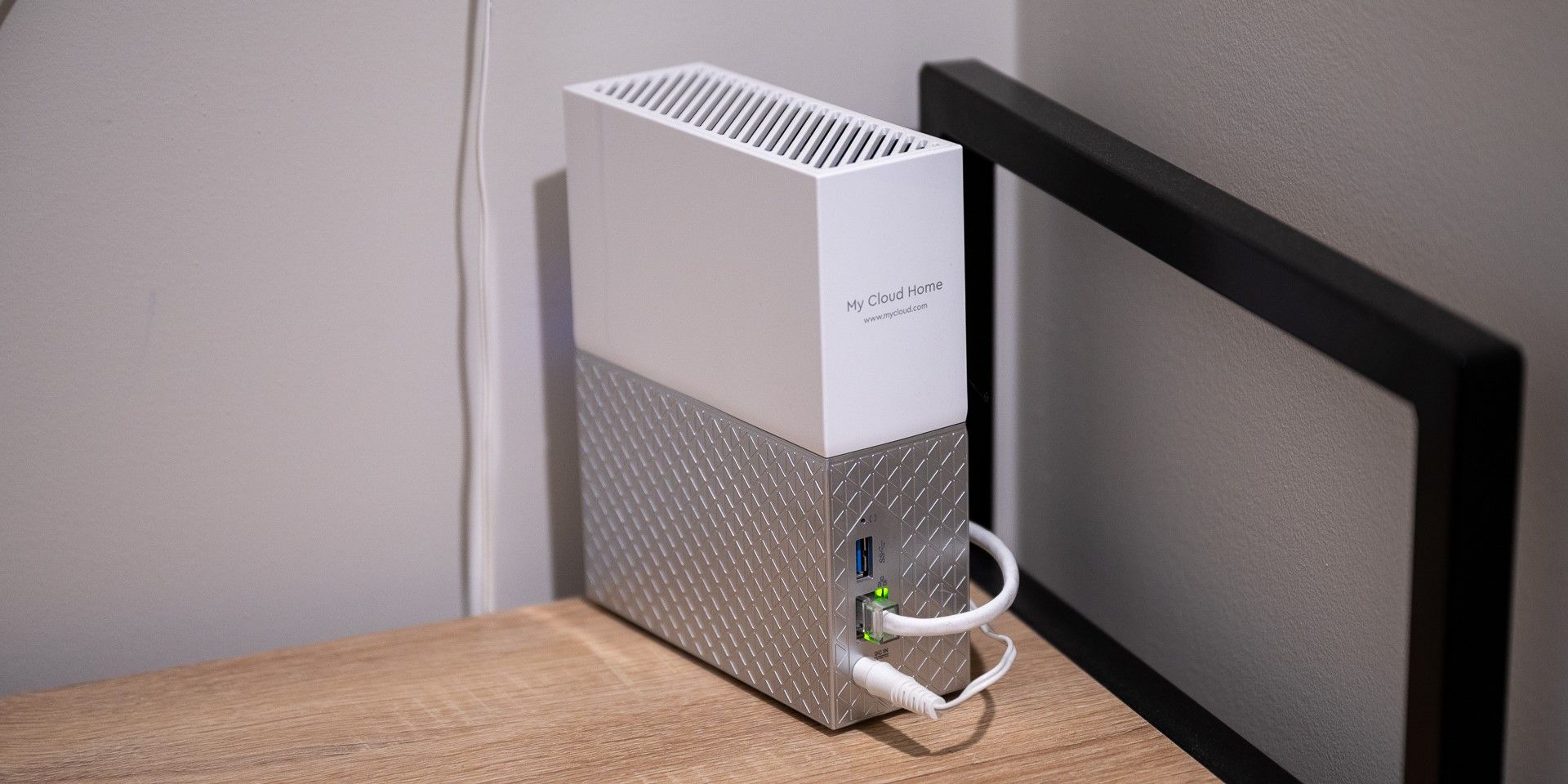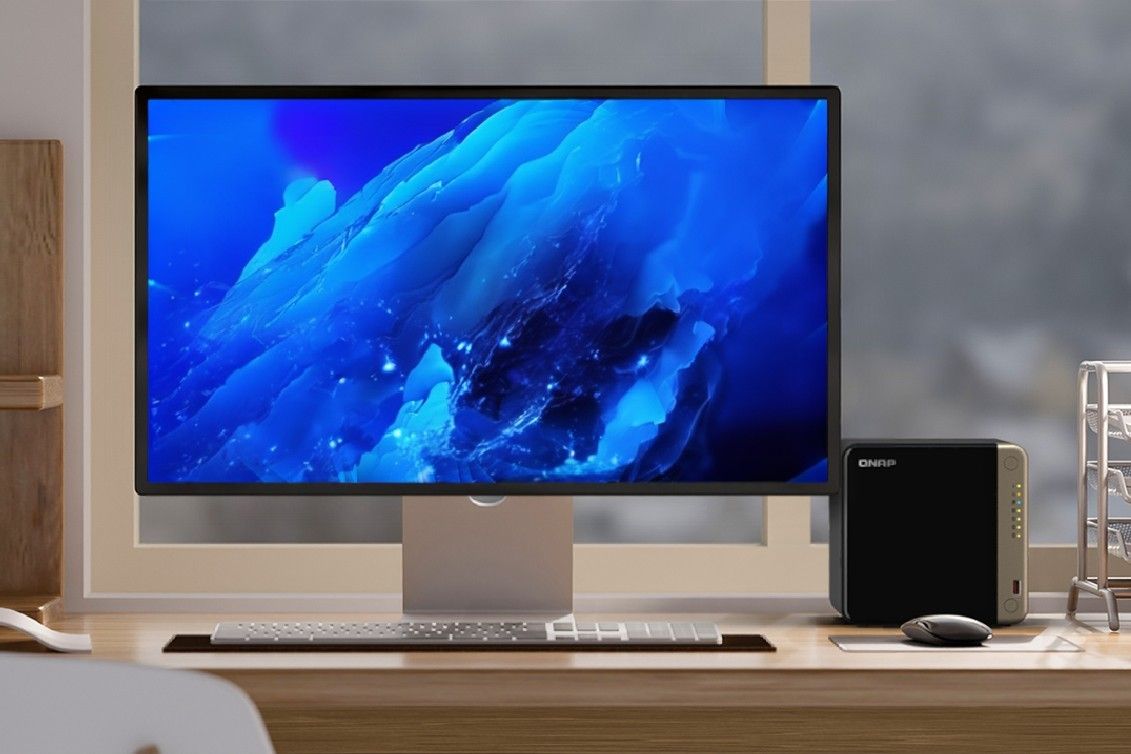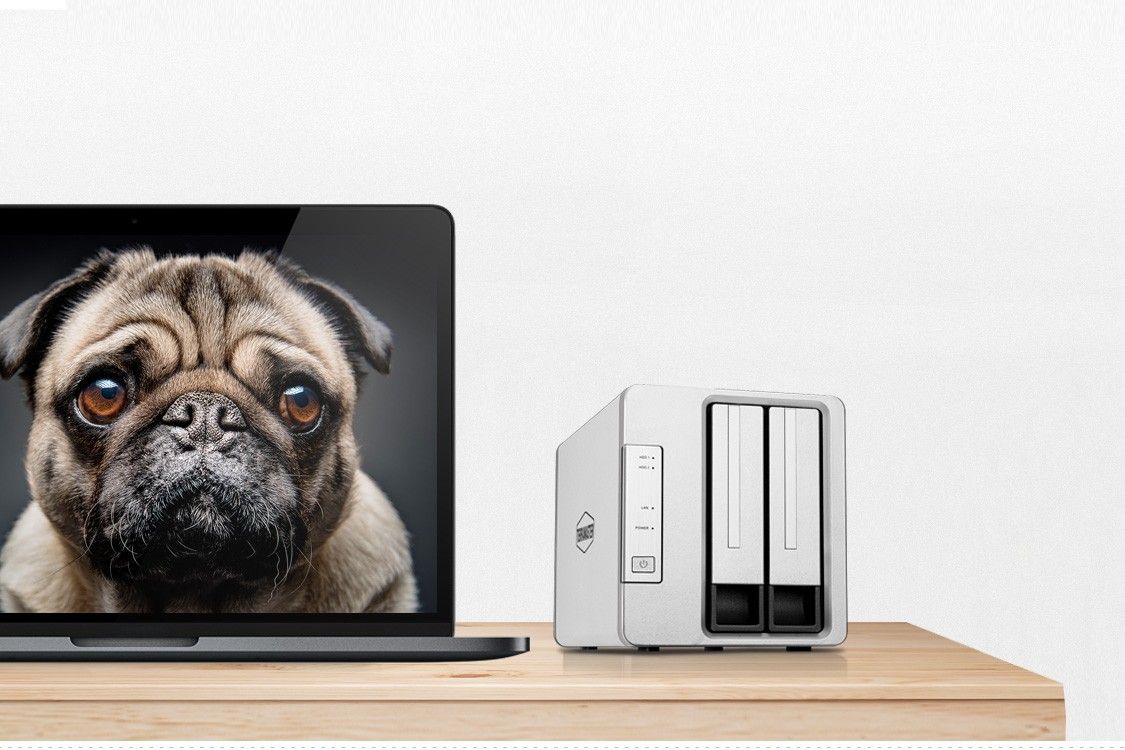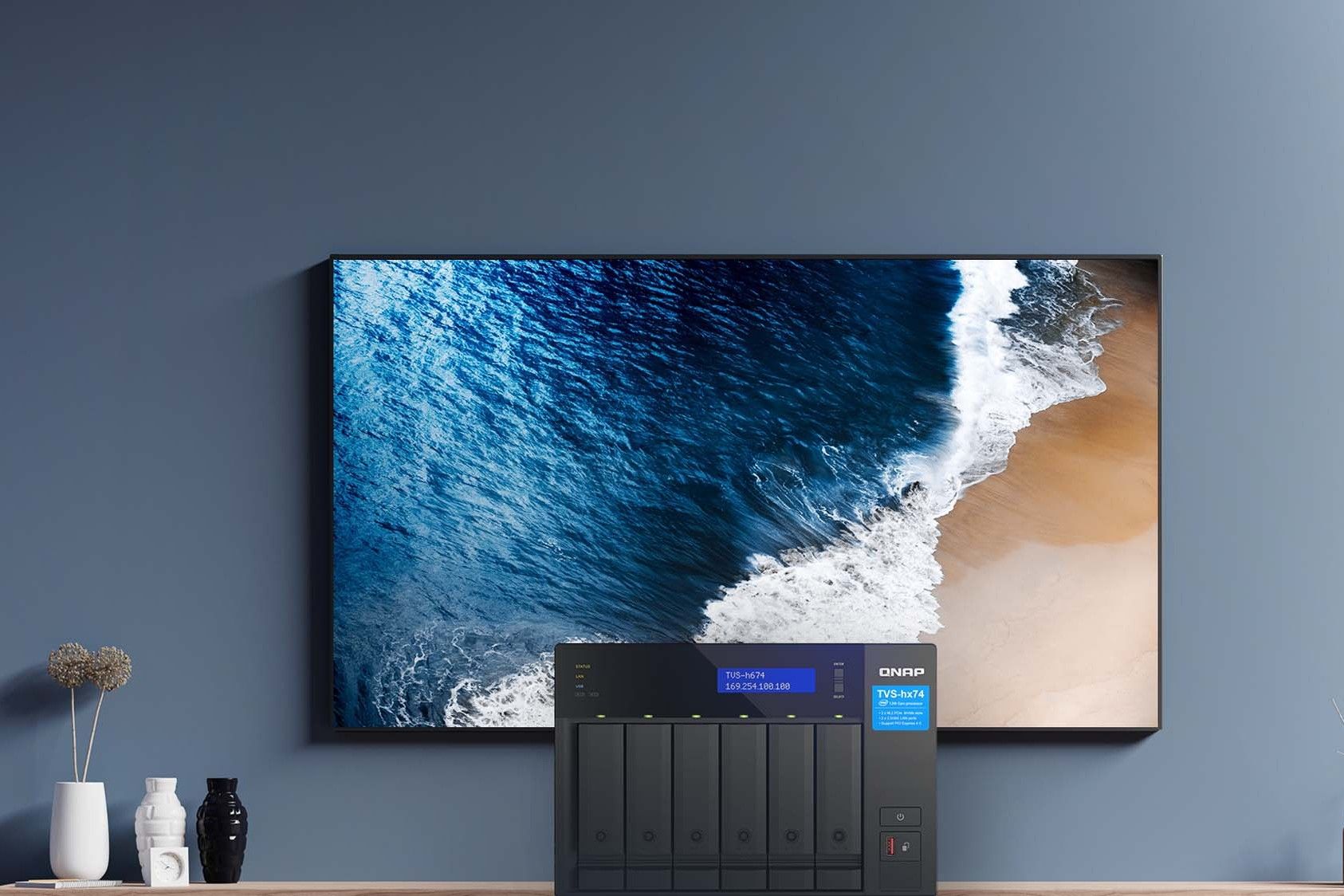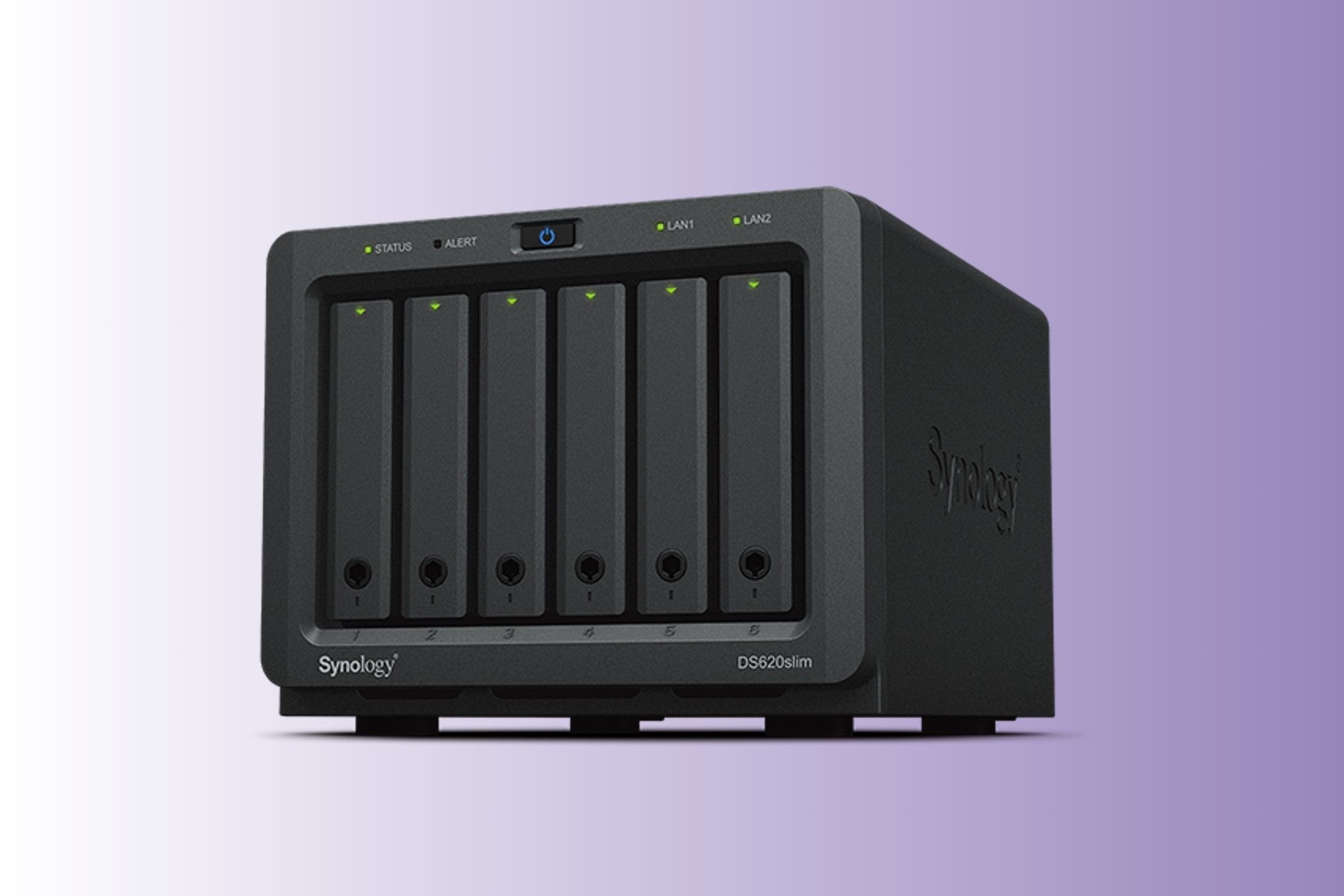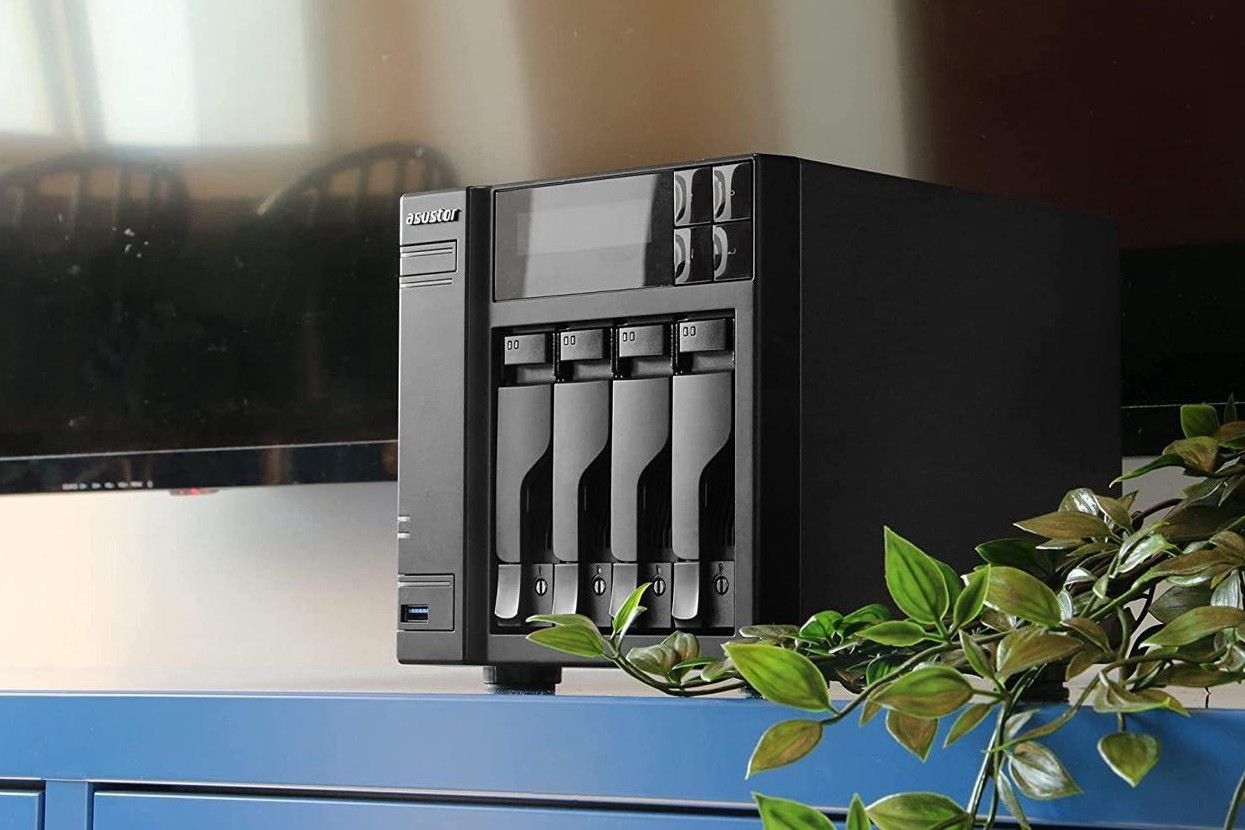NAS (network-attached storage) devices offer the best option for setting up a home media server, but not all can handle the streaming demands of epic movie nights or non-stop family marathons. If you want to set up your private Netflix, a NAS for your home media server will keep your content flowing smoothly to your smart TV, tablet, or smartphone without a buffering hiccup in sight.
Best NAS for Home Media Server: QNAP TS-464-8G
The ideal NAS for a media server boasts a powerful processor capable of handling multiple streams, even with transcoding involved. Equipped with an Intel Celeron N5095 processor and 8GB of RAM, the QNAP TS-464-8G effortlessly handles 4K transcoding without a hitch. This means no more stuttering or buffering, just pure, uninterrupted enjoyment of your favorite movies and shows, regardless of your device.
Need more storage space? The TS-464-8G delivers with four drive bays offering up to 66TB and boasts blistering file transfer speeds, thanks to its 2.5GbE ports and dual M.2 slots for speedy caching. For connectivity, the TS-464-8G outperforms the competition, featuring four USB ports, an HDMI output for direct TV connection, and a PCIe 3.0 slot for expandability. You'll be hard-pressed to find a NAS with its feature set, performance, and upgrade potential at this price point.
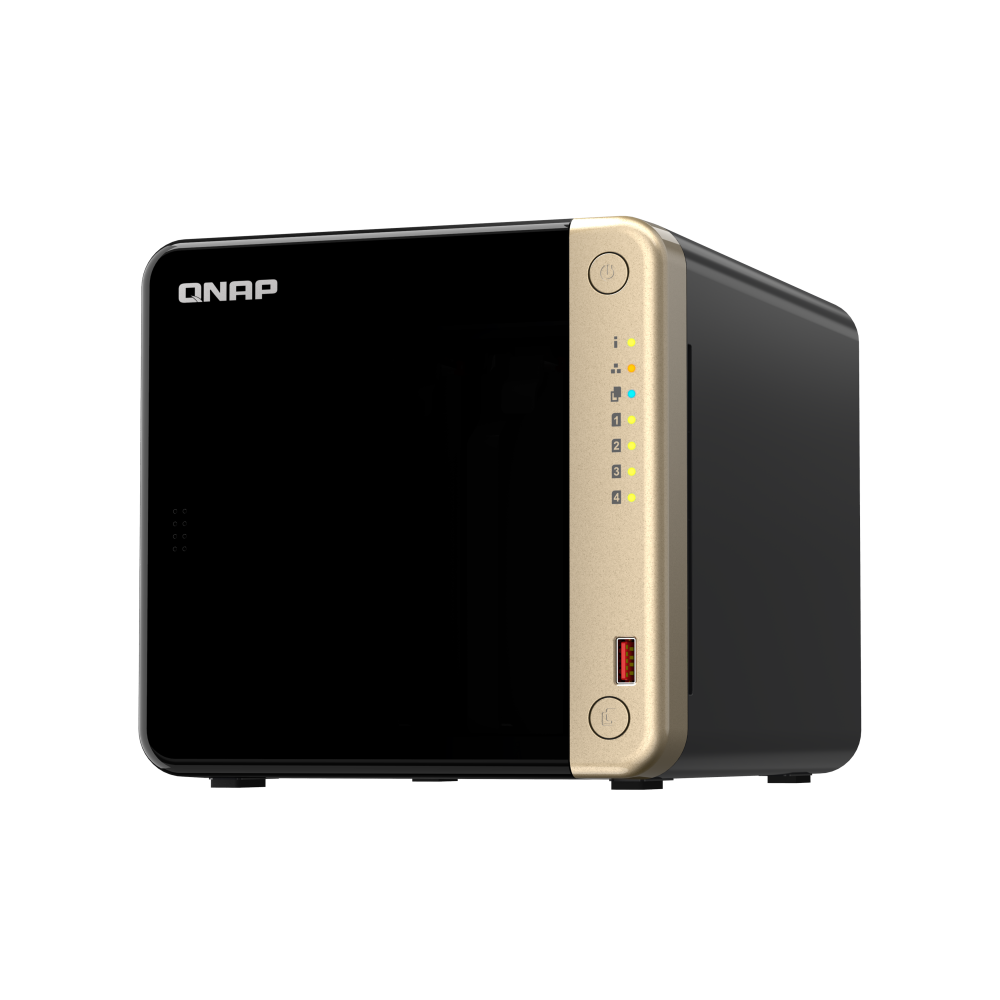
QNAP TS-464-8G
Complete with a powerful Intel processor, integrated graphics for transcoding, and diverse connectivity options like 2.5G Ethernet ports, HDMI, and M.2 slots for caching or extra storage, the QNAP TS-464-8G is perfect for creating the ultimate home media server.
- Powerful Intel CPU
- 4K transcoding support
- Intuitive software with an excellent app catalog
- Lots of I/O ports
- Drive installation requires tools
Best Budget NAS for Home Media Server: TerraMaster F2-223
The budget category for NAS devices is crowded with options, but two stand out: the TerraMaster F2-223 and Synology DiskStation DS224+. These affordable two-bay NAS devices are capable of streaming and transcoding 4K media, but the TerraMaster edges ahead by undercutting the Synology while offering better specs, including a superior Intel CPU, more RAM, M.2 SSD slots, and an HDMI output.
It also offers faster file transfer speeds and a highly responsive experience, even for multiple users, with 2.5GbE networking and SSD caching support. The only area where the TerraMaster F2-223 might fall slightly short is its software. While TerraMaster has made strides in improving its OS recently, if you prioritize an intuitive interface and a vast app ecosystem, opting for the Synology DiskStation DS224+ might be worth the additional investment.
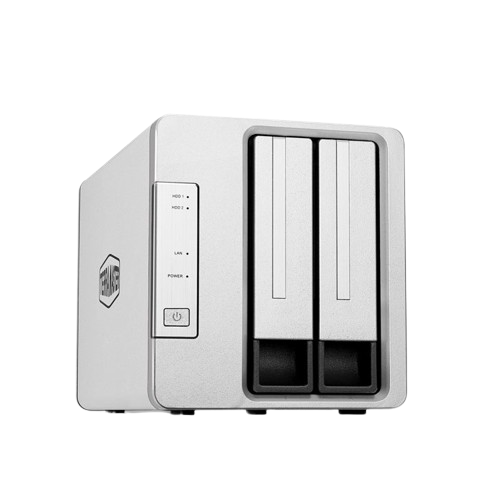
TerraMaster F2-223
If you want to set up a budget-friendly media server, the TerraMaster F2-223 stands out from the crowd for its outstanding feature set, including a powerful Intel CPU, M.2 SSD caching capabilities, faster 2.5GbE networking, and HDMI output—all at an affordable price.
- 4K transcoding support
- Fast and responsive performance
- HDMI and USB ports for direct connection
- Upgradeable RAM
- Limited app support
Best for Media Streaming: QNAP TVS-h674-i3-16G-US
After serious high-end specs? The QNAP TVS-h674-i3-16G-US boasts an overkill quad-core CPU with 16GB of RAM and SSD caching capabilities, a powerful combination capable of handling over ten simultaneous 4K streams, even with transcoding involved. You can also expand your storage at will with six hot-swappable bays, accommodating even the most voracious media appetites.
More than a basic media server, the TVS-h674-i3-16G-US can handle everything from hosting virtual machines to running popular applications like Home Assistant for seamless control of your smart devices. It is well specced out of the box with 2.5GbE networking, three 10Gbps USB ports, and an HDMI port for direct connection, but you can expand your horizons even further with a PCIe Gen 4 slot, adding capabilities like 10GbE ports.
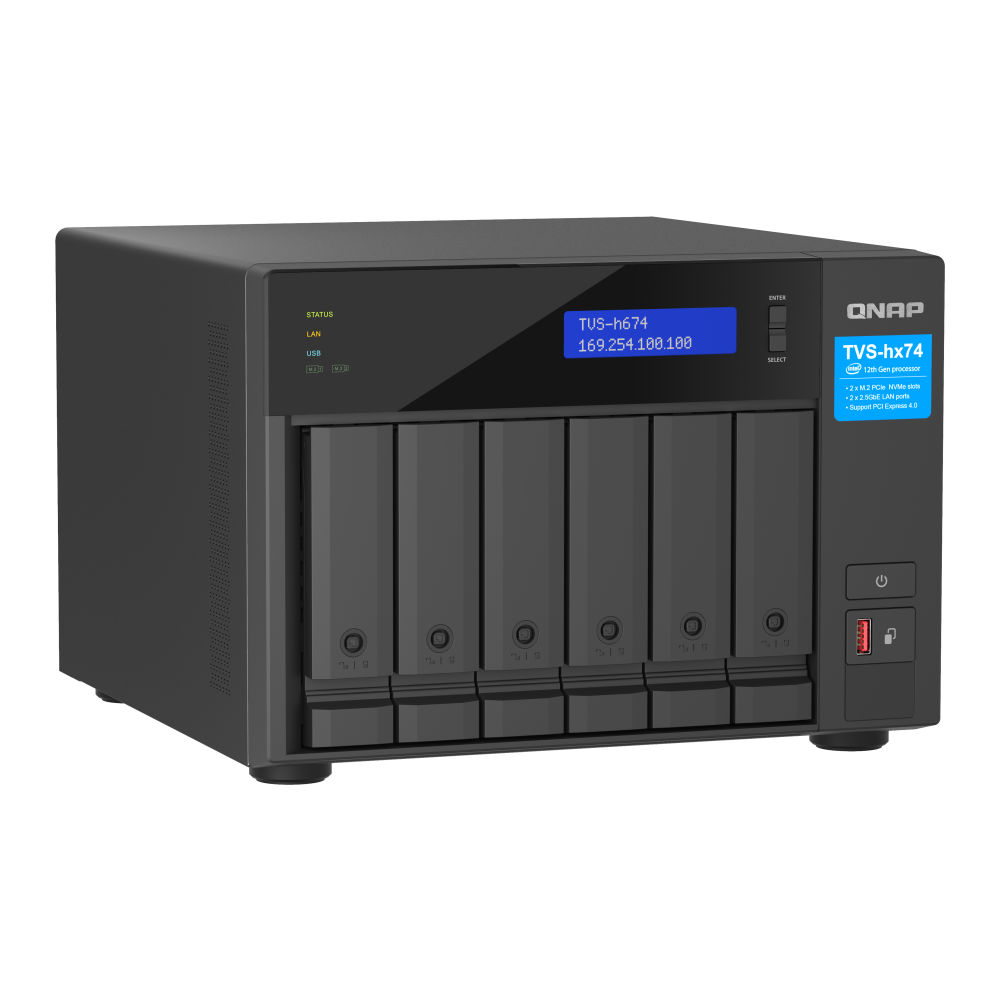
QNAP TVS-h674-i3-16G-US
Featuring a desktop-class Intel processor with powerful integrated graphics and M.2 SSD caching, the QNAP TVS-h674-i3-16G-US is perfect for smooth media streaming. It's capable of delivering 4K content to multiple devices while also handling advanced applications like virtualization and home automation via Docker containers.
- Powerful Plex 4K media server
- High-end hardware
- PCIe slot upgrades
- M.2 SSD caching
- No 10GbE port
Best RAID Compatible NAS: Synology DiskStation DS620slim
If data protection is your top concern, but you still crave smooth 4K media streaming, the Synology DiskStation DS620slim might be your perfect match. While it doesn't boast the most powerful hardware, it packs a punch when it comes to streaming and transcoding 4K videos. That means smooth media playback on your laptop, smartphone, or even a low-spec HDTV.
But the DS620slim's true power lies in its flexibility. Its six drive bays allow for different RAID setups, including RAID 5/6/10, giving you the freedom to prioritize performance for lightning-fast access or crank up the data protection dial for ultimate peace of mind. It's also very compact and surprisingly affordable compared to similar six-bay NAS devices.
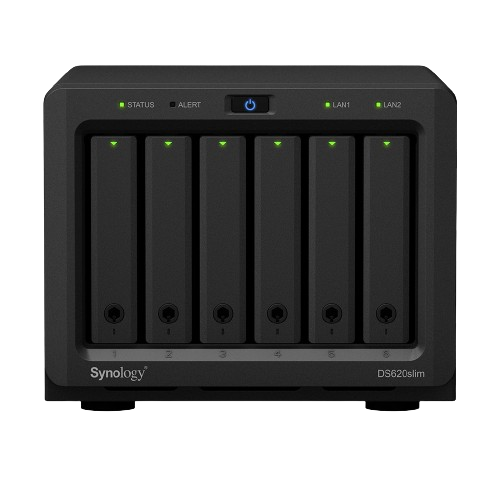
Synology DiskStation DS620slim
Synology's DiskStation DS620slim is a compact and relatively affordable NAS solution that offers six drive bays, allowing you to experiment with different RAID levels to find the right balance between redundancy and speed.
- Compact and affordable for a six-bay NAS
- 4K transcoding capabilities
- Great operating system (DSM OS)
- Upgradable RAM
- Dual USB and 1GbE ports
- No HDMI output
- Slightly less powerful CPU
Best 4-Bay NAS: Asustor Lockerstor 4 Gen2 AS6704T
The Asustor Lockerstor 4 Gen2 AS6704T closely resembles our top pick, the QNAP TS-464-8G, but boasts a few crucial upgrades that solidify its position as the best four-bay NAS available. Both excel at media streaming, supporting 4K transcoding for flawless playback on any device. You'll also find 2.5GbE networking, 10Gbps USB ports, HDMI output, and PCIe expansion on both devices.
Where the Lockerstor 4 Gen2 AS6704T truly shines is its upgradability. While it starts with 4GB of RAM compared to the TS-464-8G's 8GB, it unlocks the potential to expand RAM to 16GB should your needs evolve. Additionally, it sports four M.2 SSD slots, double that of its competitor, offering flexibility for caching or expanding storage capacity. It's an overall powerful four-bay NAS that can keep pace with your ever-growing media empire.
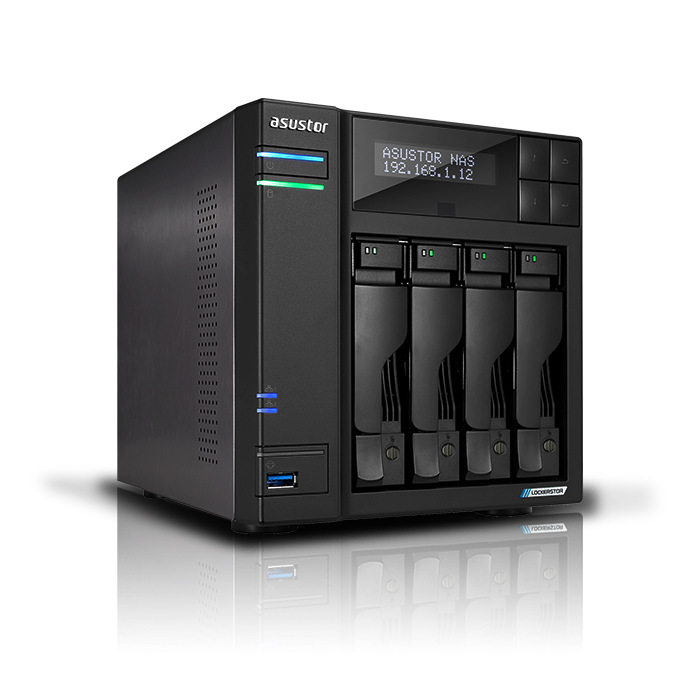
Asustor Lockerstor 4 Gen2 AS6704T
Asustor's Lockerstor 4 Gen2 AS6704T is one of the top-specced four-bay NAS devices available. It offers robust transcoding capabilities, and thanks to its upgradable RAM, four M.2 slots, and PCIe expansion, it can effortlessly grow alongside your media library.
- Can handle multiple streams effortlessly
- Powerful Intel CPU
- Easier to upgrade in the future
- Plenty of connectivity options
- No 10GbE ports
FAQ
Q: Can a NAS be used as a media server?
You can use a NAS as a media server to stream or access your videos, music, and pictures from anywhere. Most NAS devices have native apps that allow you to display and play content across different devices. You can also install a third-party media server such as Plex on a NAS and enjoy your movies and TV shows in the comfort of your home without the recurring monthly fees.
Q: Can a smart TV access your NAS?
There are two ways a Smart TV can access a NAS. One using an HDMI output where you connect the NAS directly to your TV via an HDMI cable. If your NAS does not have an HDMI output port, then you can use Wi-Fi or LAN.Connect the TV and NAS to your home network and install Plex or Kodi client apps (assuming you're using Plex or Kodi media servers) on your TV to stream content from your NAS. Some NAS offer native client apps such as DS Video in Synology to easily stream content wirelessly.
Q: What does NAS stand for?
NAS stands for Network Attached Storage, a handy device that acts like your own personal Google Drive accessible over your local network. It stores all your movies, music, photos, and more in one place, then streams them seamlessly to any device on your network, from TVs to phones. Unlike Google Drive, however, or other cloud services, a NAS is a physical device you own and manage yourself, offering complete control and flexibility.
Q: Should I use a NAS for Plex?
A NAS can be a great choice for Plex. With dedicated processors, ample storage, and user-friendly management, NAS delivers a smooth and reliable streaming experience compared to running Plex on a PC. Plus, many NAS devices come pre-installed with Plex for easy setup.
Q: Does a NAS need to be attached to a router to work?
Yes, a NAS is designed to be a network-attached storage device, so it requires a router to function fully. The router assigns an IP address to the NAS that allows other devices in the network to find and access it.
You can still connect the NAS directly to your computer via an Ethernet cable, but if you want to unlock the full NAS experience, including file sharing, media streaming, and remote access, you'll need to attach it to a router.

